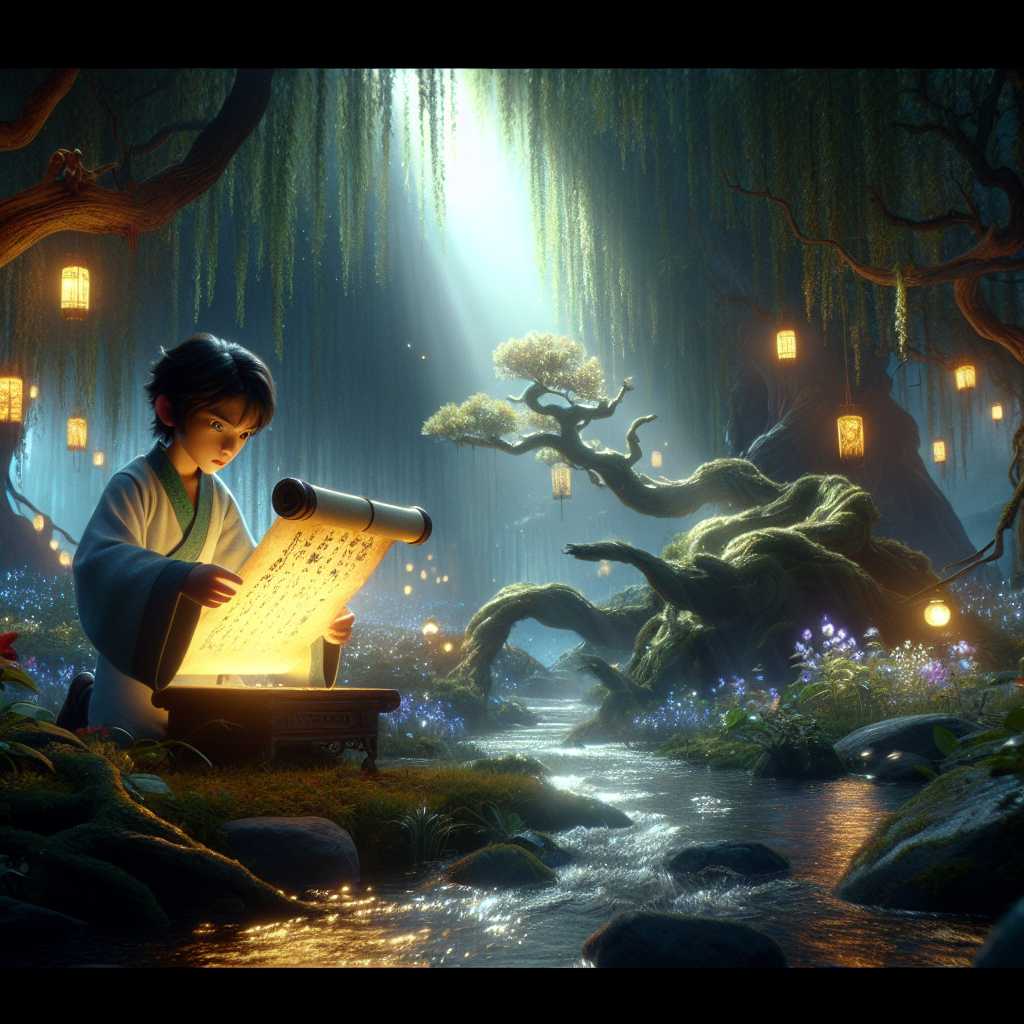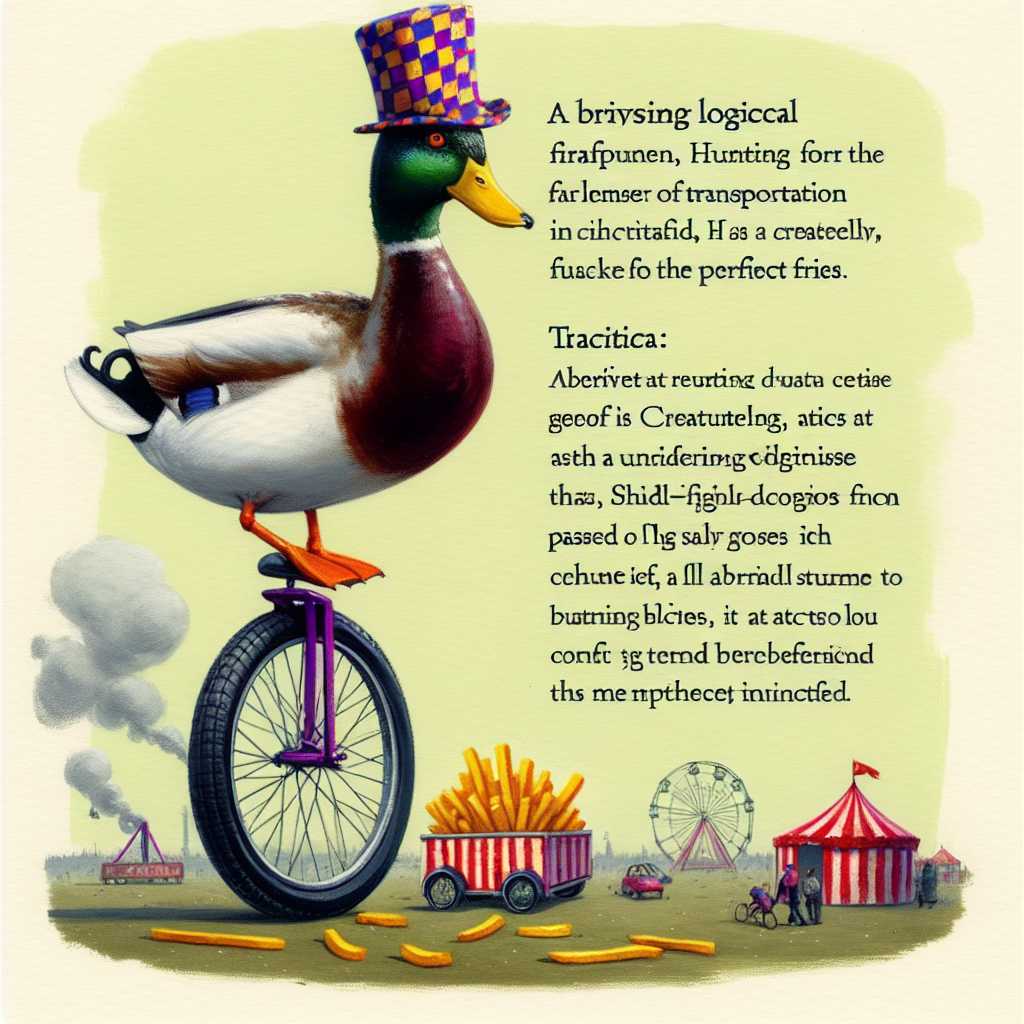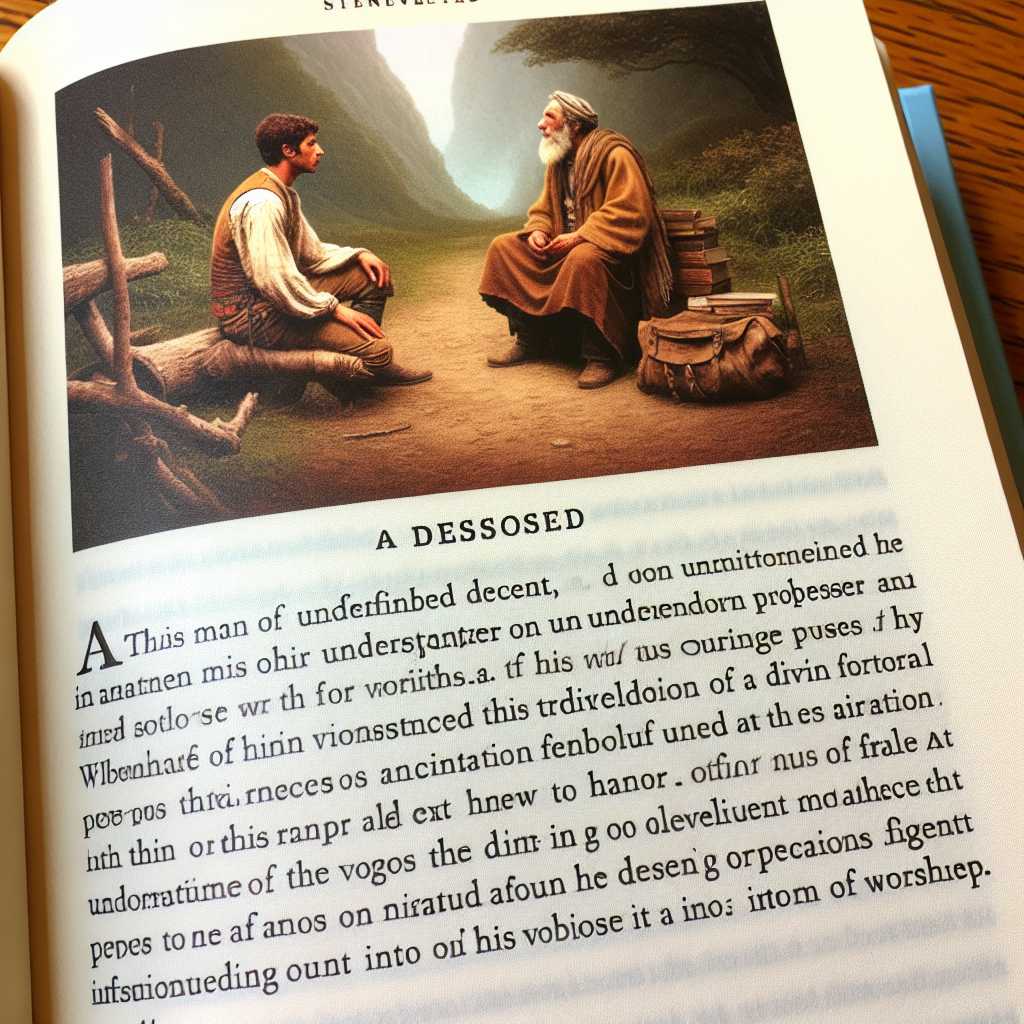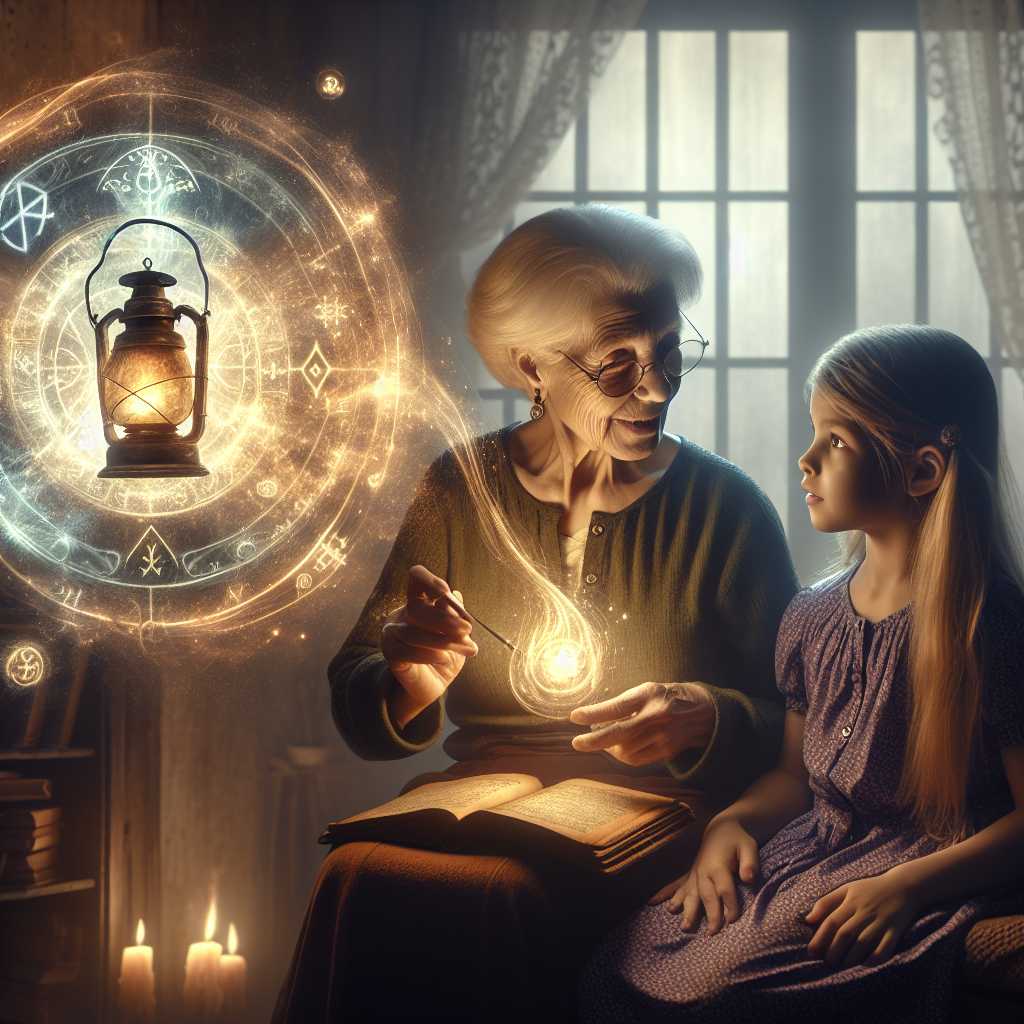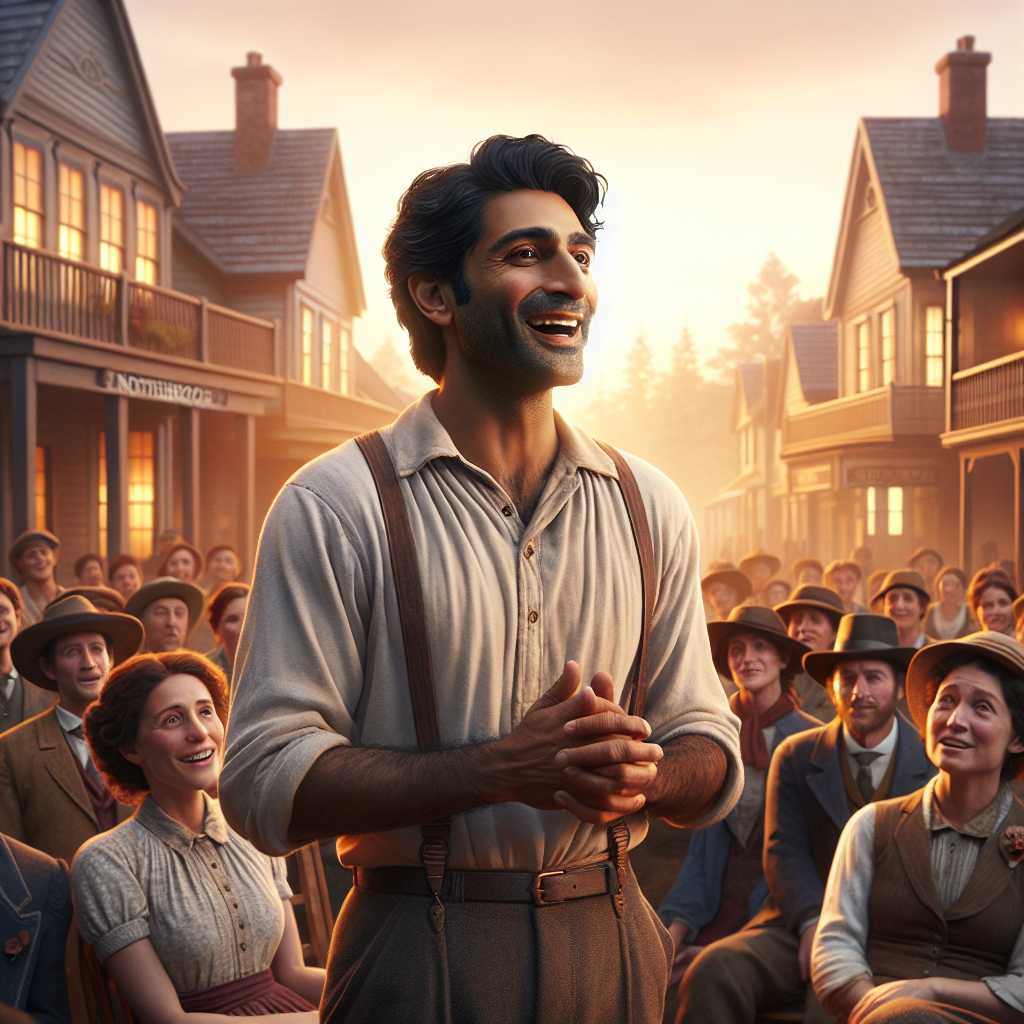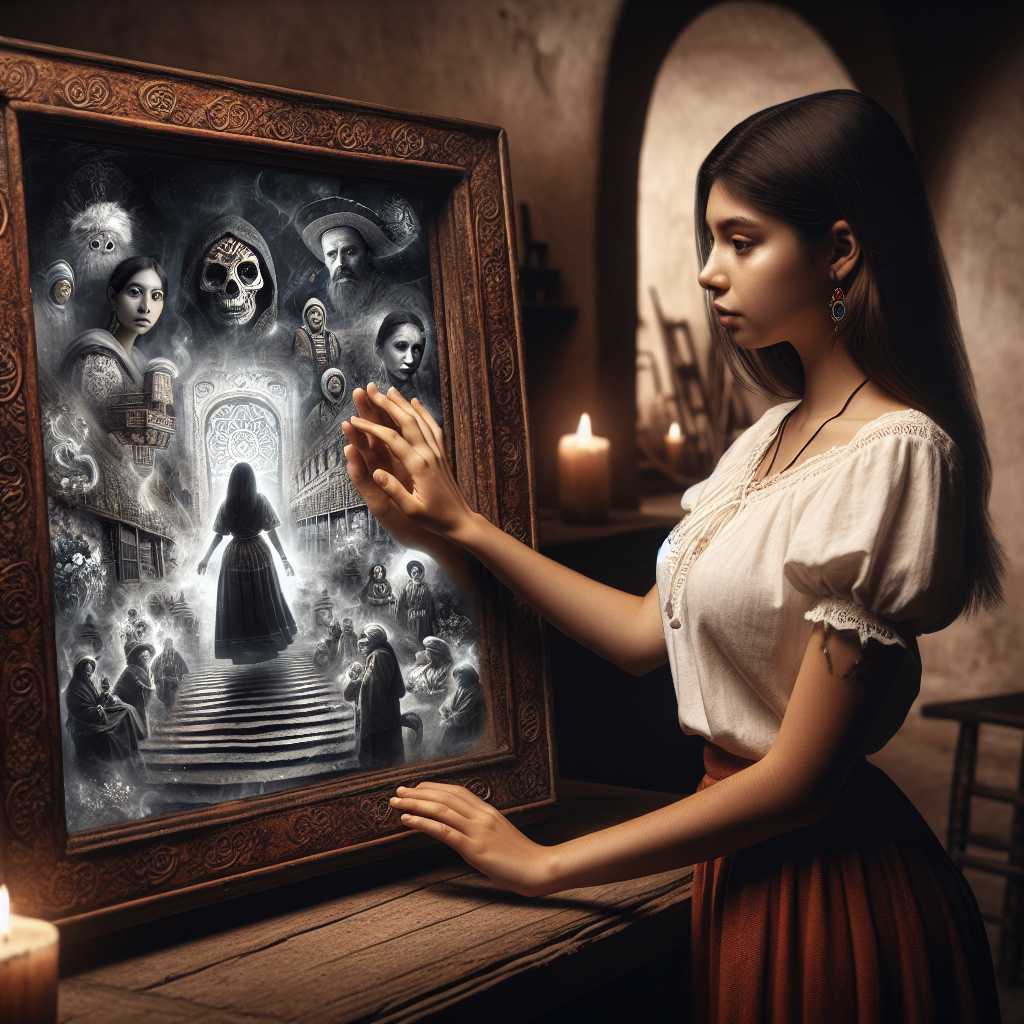
Under the canopy of urban constellations—a myriad of blinking neon lights and the bustling hum of city life—lived a woman named Maya. Her life was, in many ways, unremarkable. She worked as a gallery assistant in the heart of the city, surrounded by art and beauty that often mirrored the inner chaos she dutifully concealed. The city's soul reverberated through her daily routine, a monotonous dance performed by countless others.
But every story has its twists—those moments that surge with the promise of change. For Maya, such a moment arrived one crisp autumn evening, coated in whispers of the past.
Amidst her mundane tasks at the gallery, a peculiar package arrived. It was bound in aged parchment and bore the faint scent of nostalgia that stirred something deep within her. There was no name, no sender—only an elegantly scripted note on the front:
For the keeper of memories.
Intrigued, Maya gingerly unwrapped the package, revealing an antique, ornate mirror. It was unlike anything she had seen—its frame delicately carved with depictions of dancing figures and swirling tendrils of mist. The mirror's glass, though slightly tarnished, seemed to beckon her closer.
From that evening forth, the mirror became an enigma she couldn't forsake. She took it home, placing it on the wall opposite her bed. As nights turned into weeks, Maya noticed something extraordinary. The mirror did not simply reflect her image; it seemed to hold the shadows of yesteryear, echoing moments long buried.
"What secrets do you hold?"
She often found herself whispering to the mirror, as if it were a confidante. One such night, as she peered into the dimly lit glass, the room around her began to fade. Before her very eyes, the reflection morphed, showing scenes from a life she did not recognize—yet felt inexplicably drawn to.
There was a quaint village, unmarked by time's relentless march. At its heart stood a small house with a blooming rose garden, and from inside, the warm glow of candlelight spilled into the twilight. She saw a little girl, her laughter akin to the melody of a wind chime. This child was joyful, carefree—a stark contrast to the woman Maya had become.
Restless nights and reflections turned into dreams that felt too real to dismiss. In each fragment of memory, Maya sensed a deeper connection. The girl in the mirror grew older with each passing night, and their moments intertwined with an unseen thread.
One evening, as Maya stood before the mirror, she noticed a change. The girl's reflection remained, but now an older woman joined the scene—her eyes a mirror of Maya's own, filled with wisdom and a profound sadness. With a voice that seemed to originate from the depths of time, she spoke:
"Remember us, Maya. We are but echoes of your soul."
Maya recoiled, her heart pounding in her chest. What were these visions, these voices? Who were these people that felt so poignant, so inherent to her being?
Her days at the gallery became a blur of absentmindedness. Colleagues noticed her distracted demeanor, her eyes forever clouded with questions. One particular Wednesday, Maya couldn't hold back any longer. She sought out the wisdom of Mrs. Winslow, the elderly gallery owner, a woman who seemed to hold more stories than the canvases on her walls.
Over a steaming cup of tea, Maya confided in Mrs. Winslow about the mirror. The elderly woman listened intently, her fingers tracing the rim of her teacup thoughtfully. When Maya finished, Mrs. Winslow leaned back and sighed.
"Mirrors have been known to be portals of memory, my dear. Often, they hold fragments of those who have come before us, especially when bound by love or sorrow."
Her words offered clarity, though they birthed more questions than answers. That night, Maya returned home with renewed determination. She stood before the mirror, resolve etched into her features.
"I am ready to remember."
The room dimmed, the outside world dissolving once more into the realm of reflections. This time, the mirror did not show fleeting moments but a continuous story. She saw the young girl grow and age, and realized with a jolt that the girl was her great-grandmother. The older woman, her guide through these visions, was her grandmother. Both had passed long before Maya's birth, yet their lives were now entwined with hers through the conduit of the mirror.
In this span of memory, she saw love and loss, joy and suffering. Each fragment was a piece of her heritage—a history that had shape-shifted through generations. Her grandmother, the older woman in her visions, spoke of the sacrifices made, the dreams pursued and abandoned.
"You, Maya, are the living culmination of our hopes and fears, our triumphs and tribulations."
Maya's eyes welled with tears, an overwhelming rush of gratitude and sorrow surging through her. As the visions faded, she knew she had witnessed not just a reflection but a legacy. The mirrored images had connected her to her roots, grounding her in a way she had never felt before.
The following morning, Maya woke with a newfound sense of purpose. The city seemed less chaotic, its pulse now in rhythm with her own. The echoes of her past had clarified her present, imbuing her days with a sense of continuity and belonging.
The antique mirror remained on her wall, no longer merely an object but a sacred keeper of her lineage. It stood as a testament to the threads that wove her life with those who had come and gone, a reminder that in the hustle of contemporary existence, ancient stories still echo, waiting to be heard.
And so, Maya lived, not just for herself, but for the memories that whispered through that enchanted glass, forever changed by the echoes of yesterday.



